THE GOOD
Young guns
With injuries to Tadhg Furlong, Iain Henderson and Robbie Henshaw following the victory over Italy, all eyes were on those tasked with filling the boots of the gifted trio. Could they step up to a new level? Could they show Joe Schmidt they can mix it with the best in the Six Nations?
It could hardly have gone much better for Andrew Porter, James Ryan and Chris Farrell. The Leinster prop anchored the scrum against formidable Welsh opponents, Ryan added to his impressive showing in Paris while Farrell deservedly took home the man of the match award.
The outside centre bristled with enthusiasm right from the outset, firing himself into a tackle on Liam Williams in the opening minute.
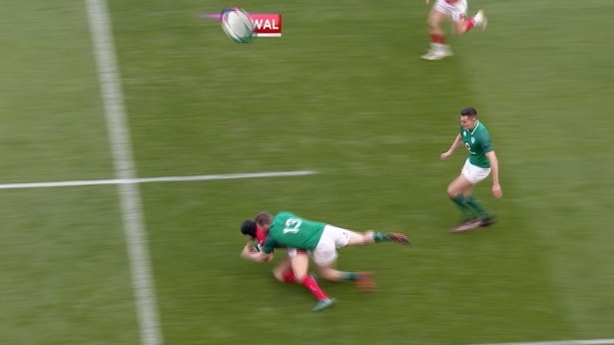
He carried for 41 metres and showed the steely defence that we have become accustomed to from previous incumbents of the 13 jersey.
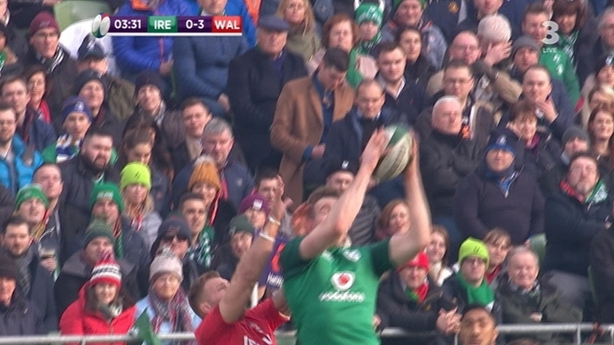
Porter was rock solid in the scrum against formidable opposition, while James Ryan simply carried on from where he left off in Paris.
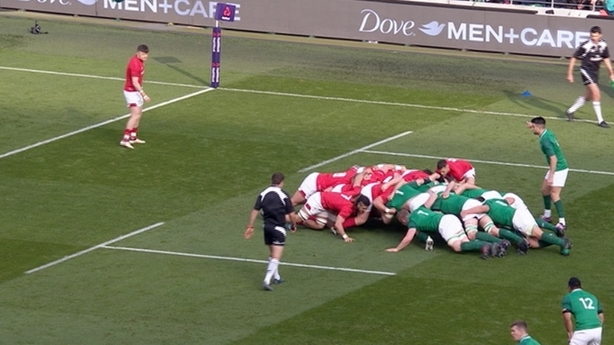
Turnovers
After conceding a measly two penalties in Twickenham, Wales coughed up nine penalties at Lansdowne Road as Irish discipline, technique and patience shone through.
When it comes to turnovers, the Irish backrow, aided and abetted by a ravenous pack, quickly pounce when they get a sniff of the ball. CJ Stander got the ball rolling in the ninth minute.
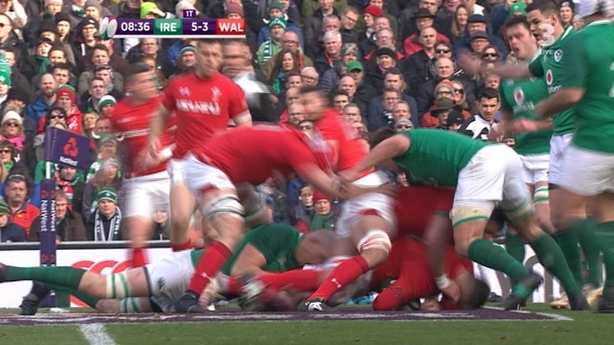
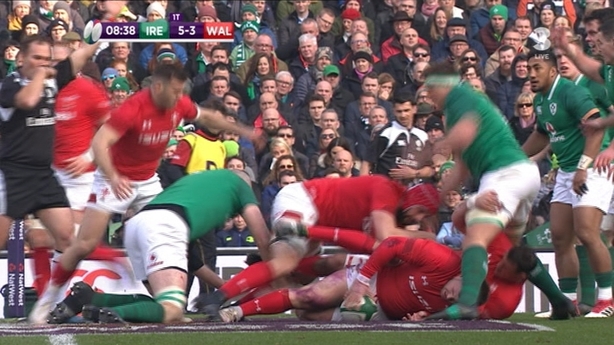
It was a trick we saw repeated on a number occasions during the course of the game, especially in the first-half with Peter O'Mahony and Dan Leavy also getting in on the poaching act.
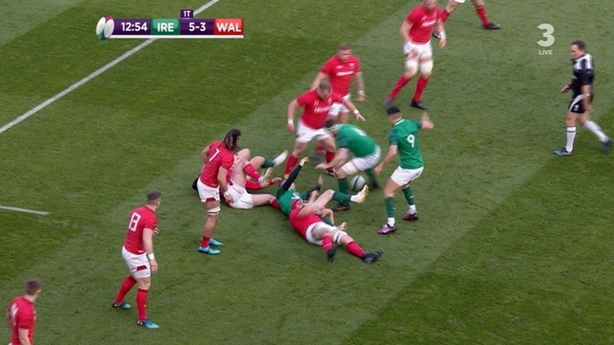
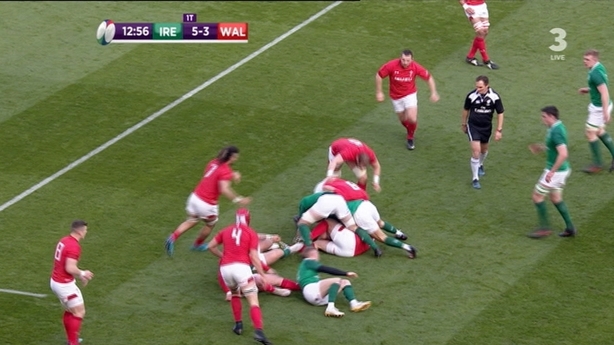
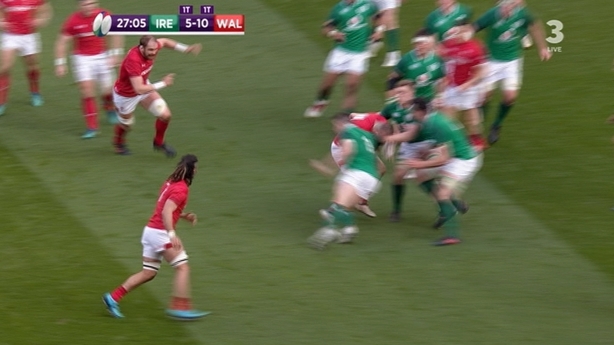
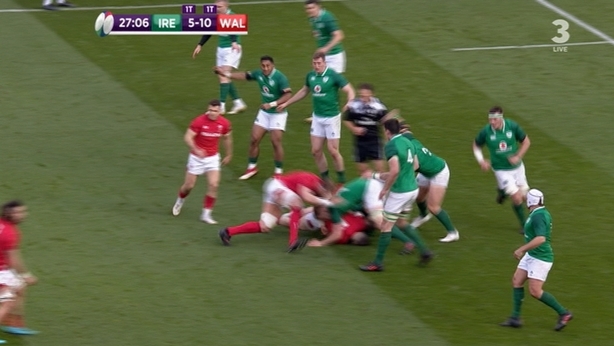
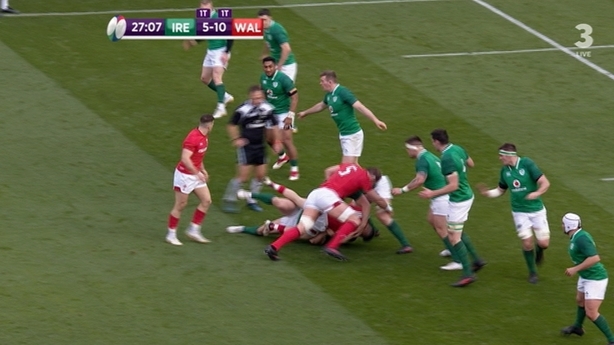
Patience
Ireland ran the ball twice as much as Wales (170 v 79), enjoyed 69% possession and 75% territory and forced their opponents into 225 tackles.
Throw in stated dominance at the breakdown and Warren Gatland’s side really were living off scraps. It was a day for patience and a steely belief in the gameplan, which is what served the home side well as they bossed proceedings.
Cian Healy's early second-half try was a prime example.
After Scott Williams was bundled into touch, the home side took Wales through lineouts, scrums, reset scrums and a number of phases inside the 22 and the visitors wouldn't touch the ball again until Dan Biggar's restart.
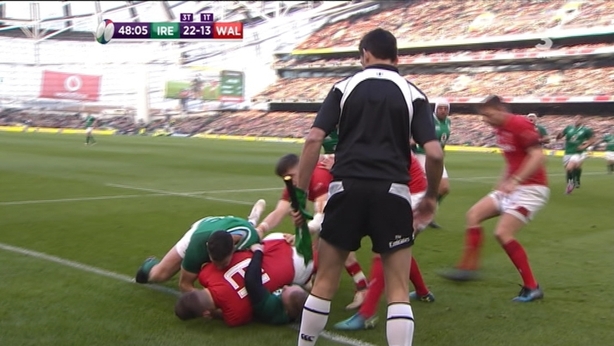
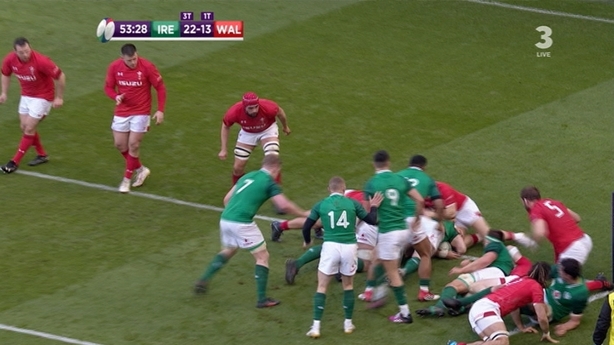
Ireland's ability to stick to their guns also forced a frustrated Wales to cough up cheap penalties.
After a succession of Conor Murray box kicks, Aaron Shingler, who was warned by referee Glen Jackson to remain onside, couldn't help but illegally attempt to block down the Irish scrum-half.
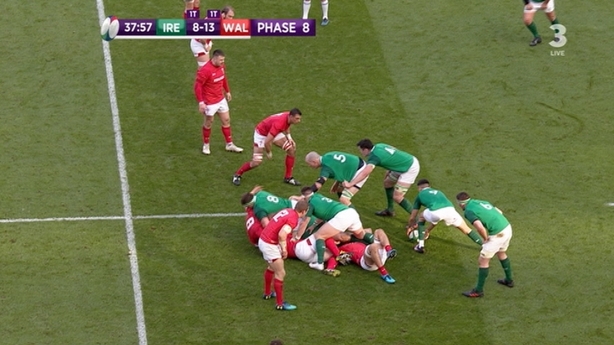
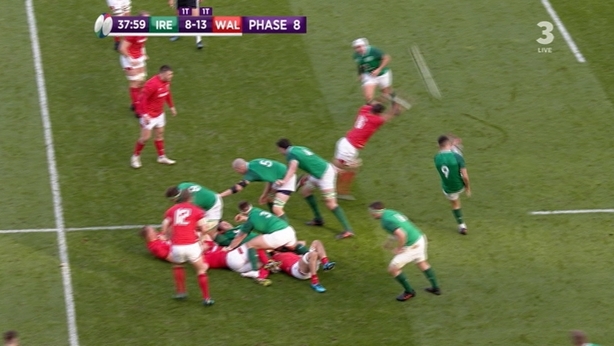
Johnny Sexton
The out-half endured one of his most difficult days from the kicking tee, yet demonstrated his class throughout the contest.
First thing first; those misses. Sexton entered the game with doubts surrounding his fitness following a shortened captain's run, and while Joe Schmidt said post-match it did not impact the 10, it may have played a role in some uncharacteristic misses, particularly his first shot at goals which came off the post. For a player with a 90% conversion rate coming into the game, it was a howler.
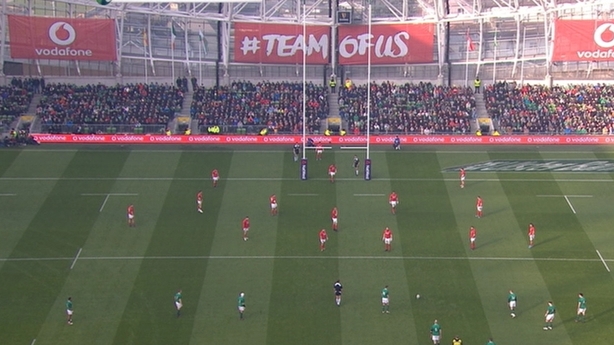
His decision to run the ball, rather than go for territory, with the game in the melting pot would have come under more scrutiny had Ireland failed to see out the win, but in every other facet he exuded class and composure.
Jacob Stockdale's first try owed a great deal to Ireland building through the phases and executing correctly, but Sexton's arrowed pass was the key moment, taking out three Welsh defenders allowing the Ulster winger make it seven tries in seven Test appearances.
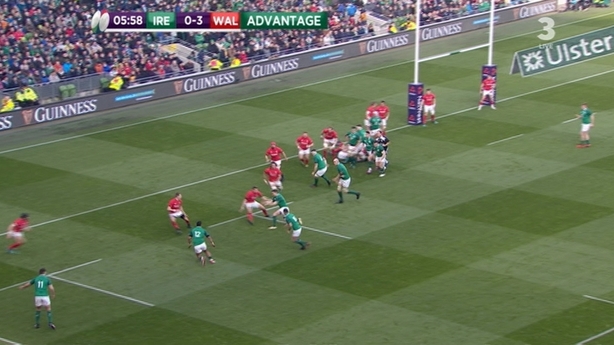
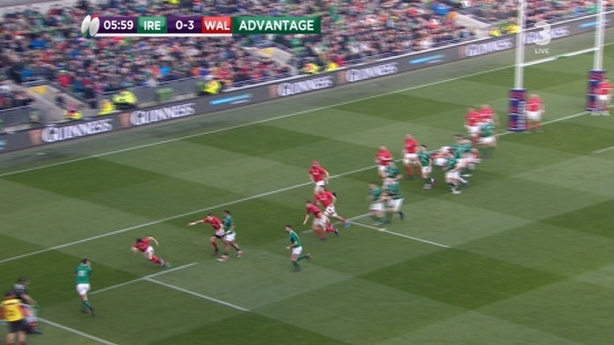
How many other 10s in the Championship would have pulled off the skip pass with such gusto? It certainly contrasted with Dan Biggar's more pragmatic, kick-oriented approach.
The fearless out-half also carried 15 times for a total of 55 metres, some of them hard-earned yards as Ireland looked to eke out valuable space.
An outside break in the first-half showed more of his vision, speed and strength.
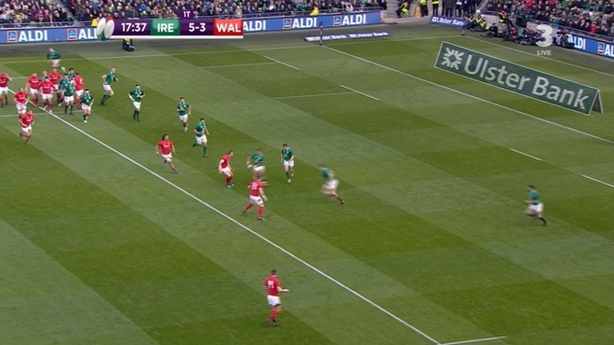
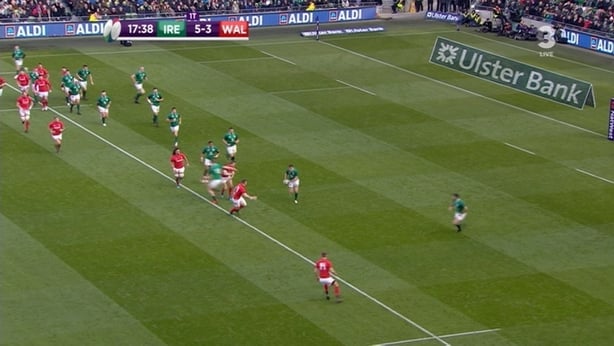
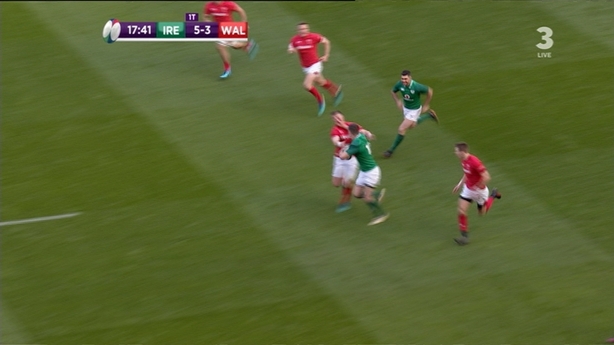
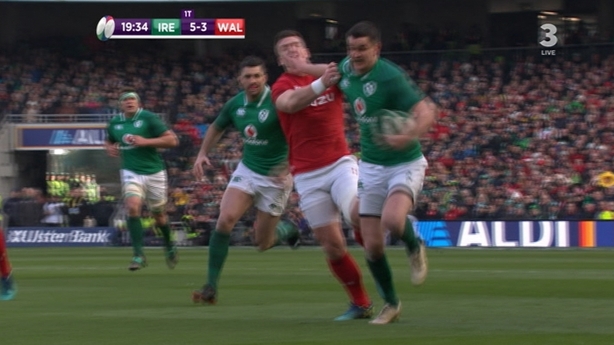
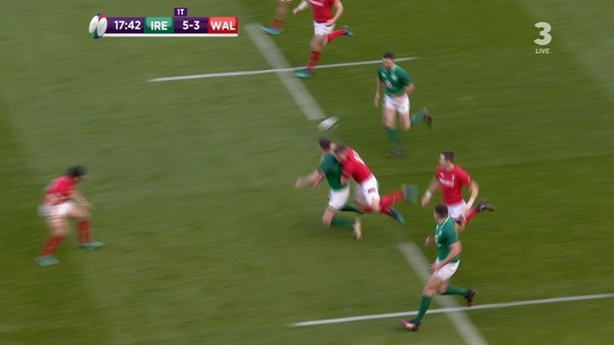
THE BAD
Leaky in the red zone
Starved of possession and territory, Wales made just three forays into the Irish 22, yet came away with three tries. While Ireland controlled proceedings, Wales’ clinical nature was almost enough for a win, and Ireland will be concerned at the numb er of tries conceded in the two games in Dublin.
Indeed had Wales shown a little more ambition, they could have posed an even greater danger.
In the 17th minute, Gareth Davies strips the ball from Johnny Sexton, and with Irish cover low on the openside, the ball is moved out to Scot Williams.
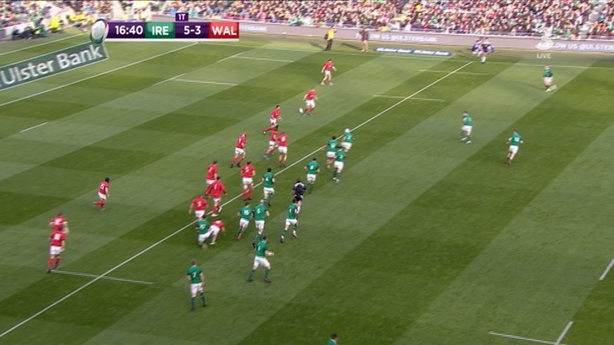
He has Aaron Shingler calling for the pass, with Steff Evans hugging the touchline. Inexplicably in a three on three, he elects to boot downfield.
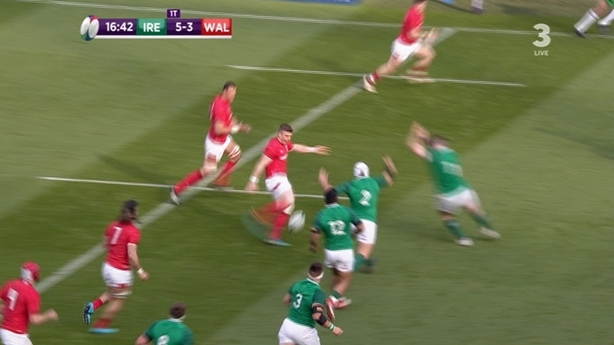
The first try was a combination of Bundee Aki’s failure to gather and Chris Farrell’s step inside, allowing space for Wales to work the numerical advantage.
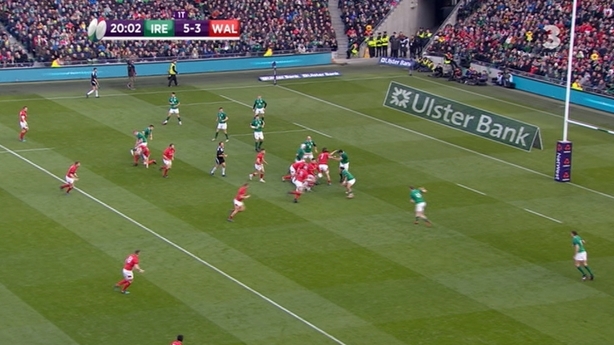
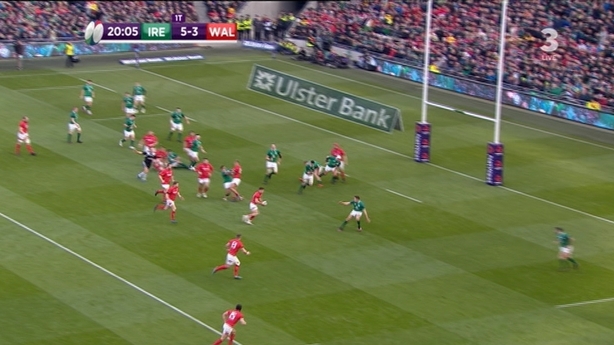
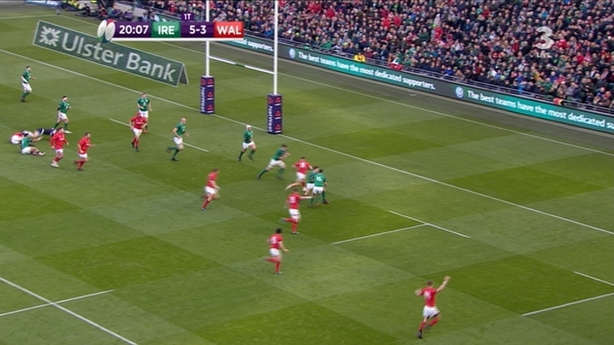
A narrow defence was evident in the build-up to Aaron Shingler's try.
Keith Earls, who was excellent throughout, stepped in off the line and Scott Williams floats the pass out to Steff Evans to make headway on the wing.
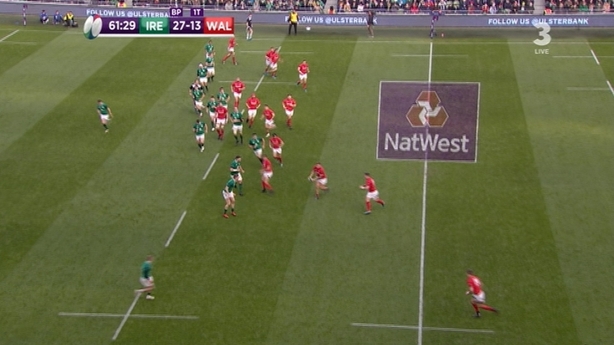
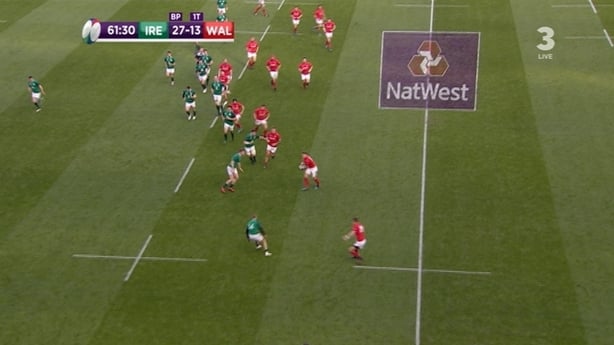
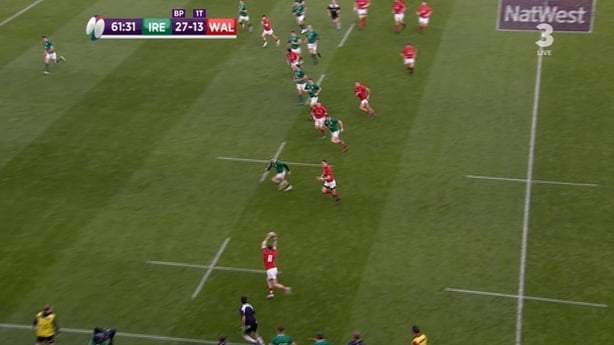
Andy Farrell will not be pleased with the manner in which the third try was conceded.
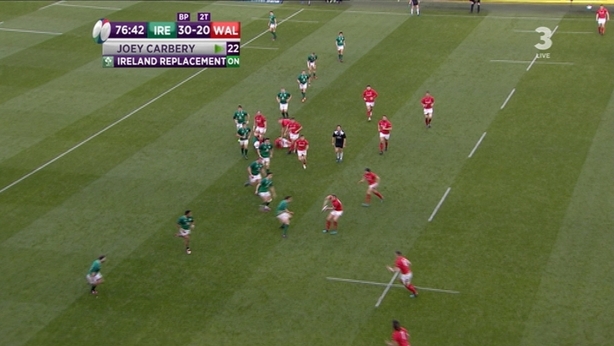
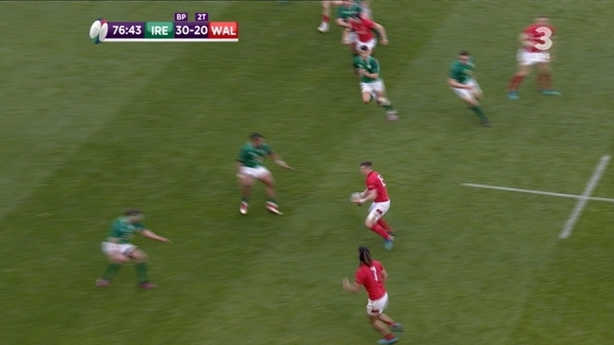
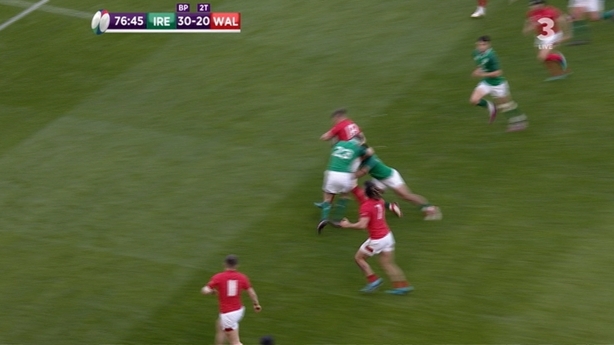
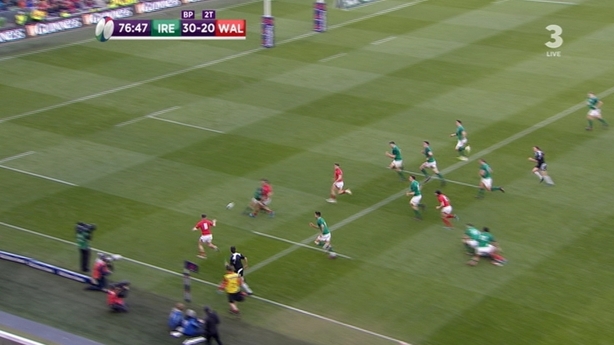
Big problems ahead?
One thing Joe Schmidt will be very cognisant of as he plots for Scotland is the fact that Dan Biggar did not have one of his better days in the Welsh 10 jersey.
Out since January, it was always going to be a tall order expecting the Ospreys man to get back up to speed, but his deployment signalled the gameplan Warren Gatland would look to execute.
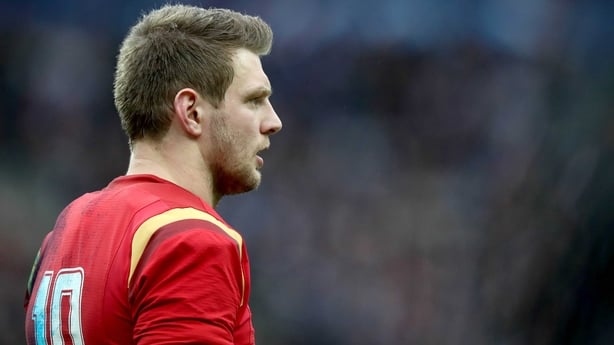
Out went Scarlets playmaker Rhys Patchell, with Biggar introduced for his kicking prowess and aerial ability. Biggar doesn’t have the same range of passing as Patchell and playing flat to the line to maximise the backline simply isn’t what his game is about, yet Ireland still conceded struggled the few times Wales got a hold of the ball in Irish territory.
Biggar’s passing was a little ponderous at times, while he was also swallowed up in the build-up to Leavy’s second-half try.
Nine of Wales' 17 first-half possessions were kicked away. Gregor Townsend's side have a shocking away record since 2000 (six wins, four against Italy) and could well come with a more conservative approach after their chastening defeat in Cardiff, but it would go against Townsend's attacking instincts.
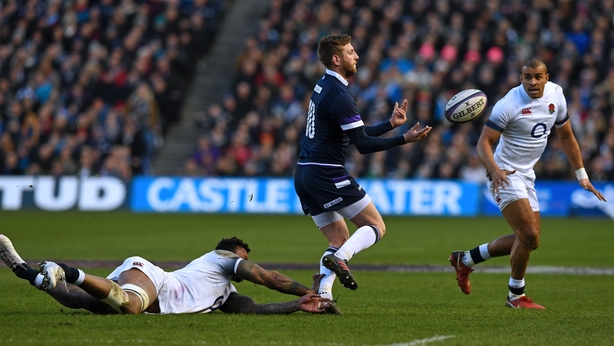
Finn Russell, man of the match for Scotland against England, will pose different questions of the Irish defence. Like Patchell, he is liable for criticism when the high-risk passes fail to come off, but can be devastating when he hits form on the back of a thriving pack.
How he performs, assuming Scotland get any kind of platform, will go a long way towards deciding Scottish ambitions of a second successive victory over Joe Schmidt's side.
THE UGLY
The Grand Slam dream remains well and truly on course, but the concerns over the defence following the Italian game have only intensified. With question marks over Ireland's ability to break down Wales dominating the lead-in to the game, a five-try haul is to be widely acknowledged and praised.
However Ireland have already conceded the same number of tries (seven) as they did in last year's campaign with games against Scotland and England to come. Shane Horgan is among the pundits who have repeatedly pointed to a narrow defence as to why we have afforded more chances this season, while a couple of system lapses and individual errors contributed to Wales' three tries last time out.
Scoring more than the opposition is all that Irish supporters will care about over the next fortnight, but expect the management team will be leaving no stone unturned to tighten up ahead ahead of the visit of the Scots and the Patrick's Day trip to Twickenham.


